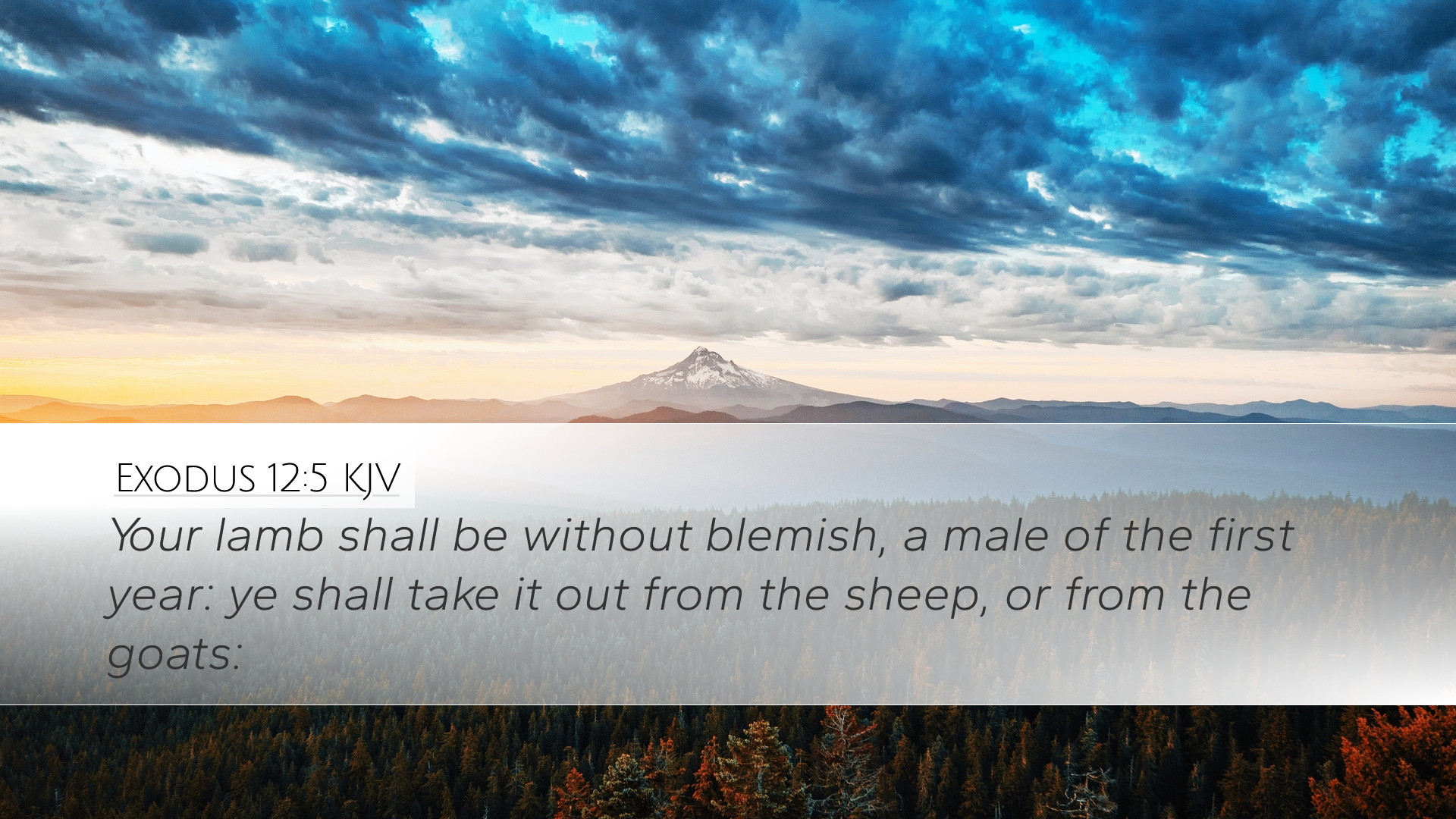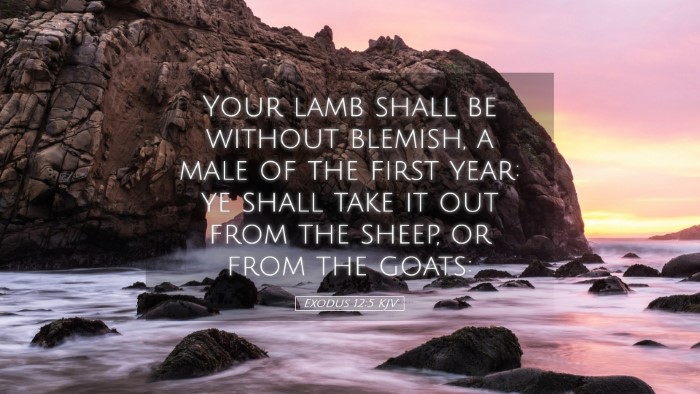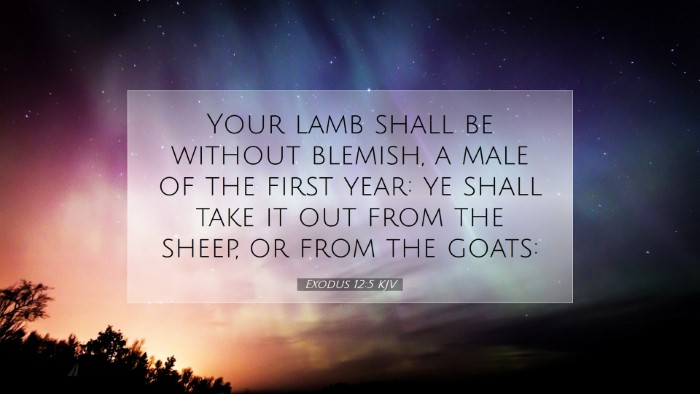Exodus 12:5 - Commentary Overview
Exodus 12:5 states: "Your lamb shall be without blemish, a male of the first year: ye shall take it out from the sheep, or from the goats." This verse is part of the instructions God gave to the Israelites regarding the Passover, the final plague upon Egypt, and the deliverance of His people.
Contextual Background
This verse stands at a crucial juncture in the history of Israel, marking the transition from slavery to liberation. It foreshadows the sacrificial system that would be integral to Israel's worship and is foundational in Christian typology as it relates to Christ.
Theological Significance
- Typology of Sacrifice: The requirement of a lamb without blemish signifies purity and perfection. This points to the coming Messiah, who is without sin (Hebrews 4:15) and was destined to be the ultimate sacrifice for humanity.
- Covenantal Relationship: The act of the sacrificial lamb underscores the covenant between God and His people, showcasing God's provision for atonement and protection.
Insights from Commentators
Matthew Henry
Matthew Henry notes the importance of the unblemished lamb as a representation of the Lord Jesus Christ, the Lamb of God. He emphasizes that the purity required for the Passover lamb highlights the necessity for holiness in our lives. Henry also points out that the lamb being a male of the first year reflects both strength and youth, symbolizing the vigor of a life dedicated to God.
Albert Barnes
Albert Barnes elaborates on the choice of a male lamb, underscoring its significance in the culture of sacrifice. He comments that this choice conveys the idea of the best and the first being offered to God, indicative of reverence and honor. Barnes further analyzes the implications of 'without blemish,' stressing that it conveys an essential principle of worship — that God's offerings should be the best we have, aligning with the attitudes of gratitude and respect towards our Creator.
Adam Clarke
Adam Clarke offers an extensive examination of the cultural and historical context surrounding the symbolism of the lamb. He remarks on the deep-rooted traditions in sacrificial practices among the Israelites, emphasizing that every detail was prescribed to draw attention to the gravity of sin and the requirement for atonement. Clarke insists that this verse encapsulates not only ritualistic symbolism but also a profound spiritual truth regarding the need for purity in approaching God.
Practical Applications
- Personal Reflection: Pastors and theologians are encouraged to reflect on what it means to offer our best to God. This extends beyond material offerings to a heart posture that seeks holiness and purity.
- Ethical Implications: The call for an unblemished lamb can be a teaching moment about integrity in personal and communal worship practices. Leaders should prepare their congregations to approach God with sincerity.
- Understanding Christ’s Sacrifice: As students of the Bible, recognizing the fulfillment of this requirement in the sacrifice of Jesus Christ is vital. The Passover is a prophetic shadow of the ultimate lamb slain for the redemption of humanity.
Conclusion
Exodus 12:5 is not merely a historical directive; it transcends time as it encapsulates the essence of sacrifice, redemption, and the holy nature of God. The insights from noted commentators deepen our understanding and appreciation of this passage, equipping pastors, students, and theologians to convey its richness to their congregations and communities.


